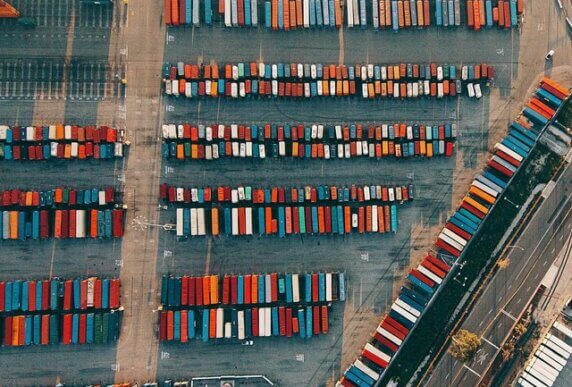


Rodolphe Saade
Chief Executive Officer
Chairman of Board
CMA CGM Group
Søren Skou
Chief Executive Officer
A.P. Moller-Maersk
Soren Toft
Chief Executive Officer
MSC Mediterranean Shipping Company
Cheng-Yung Chang
Chairman
Evergreen Marine
Jeremy Nixon
Chief Executive Officer
Ocean Network Express
RE: IPCC report: Investments in new fossil-fueled ships must end immediately
Dear global shipping industry CEOs,
We are writing to urge you to cancel all new fossil fuel ship builds in your order books and invest only zero-emissions technologies and fuels for your future global fleets.
The United Nations IPCC report Climate Change 2022 Mitigation of Climate Change released last month makes clear the world must immediately be reducing global GHG emissions from current levels. It states that we have just eight years left to halve climate-disrupting emissions from 2019 levels and warns that continued investment in fossil fuel assets and infrastructure will lock-in high emissions. In unveiling the report, United Nations Secretary General Antonio Guterres stated clearly:
“Investing in new fossil fuels is moral and economic madness.”
Worse, the World Meteorological Organization warned on May 9th that there is a 50:50 chance of global temperatures reaching the 1.5°C threshold within the next five years.
As you know, the international shipping industry accounts for 3% of global greenhouse gas emissions, making it one of the world’s top 10 climate polluters. Air pollution from the heavily-polluting cargo ships has been linked to 6.4 million childhood asthma cases annually and contributes to over 250,000 premature deaths in primarily Black, Brown, Indigenous, poor, and working-class neighborhoods. On its current trajectory, shipping is expected to comprise 17% of global greenhouse gas emissions by 2050.
According to Pacific Environment and Stand.earth’s Cyber Monday 2021 report, Shady Routes: How Big Retail and their Carriers Pollute along Key Ocean Shipping Corridors, your companies are among the top maritime polluters among companies that ship to the United States, responsible for at least 11,994,007 tons of carbon dioxide emissions from 2018 to 2020.
We agree with the words of UN Secretary Guterres: Continued and increased investments by your companies in brand new fossil fuel assets at this critical time in global climate history is indeed moral and economic madness.
This statement holds particularly true for LNG, as the IPCC finds that methane emissions must be reduced by 33% by 2030 in order to have a chance to stay within a 1.5°C emissions pathway. For the shipping and aviation industries specifically, the IPCC report finds that “natural gas-based fuels are expected to be inadequate to meet stringent decarbonization goals for these segments (high confidence).”
These findings build on analysis from the International Council on Clean Transportation that found that LNG-powered ships emit between 72-80% more lifecycle greenhouse gasses than diesel-powered ships in the short and mid-term. The methodology in the ICCT report was used to calculate methane emissions from the shipping sector in the UN International Maritime Organization Fourth Greenhouse Gas Study 2020. The IMO study concluded that although LNG use had increased by 28-30% between 2012 to 2018, methane emissions from the sector had increased by a staggering 151-155%. This was largely attributed to the high levels of unintentional methane emissions in the most widely used duel-fuel LNG ship engine.
For these reasons and more, we urge you to only buy and build new ships with 100% zero-emission ship propulsion fuels and technologies from well-to-wake – in addition to taking immediate action to retrofit existing ships in your fleets to reduce their climate and air pollution.
In considering carbon neutral fuels, fuels should be evaluated on a “lifecycle” basis, i.e. from extraction or production, through processing, to emissions resulting from use on board. This must include any leakage, slips and venting throughout the lifecycle of that fuel. All greenhouse gases (GHGs) and co-pollutants like Black Carbon must be accounted for, not just CO2. Finally, carbon offsets cannot be included as a part of a viable decarbonization pathway.
While there is no one silver bullet to decarbonize the maritime sector, there are multiple options both currently available and as emerging technologies and fossil-free fuels that will reduce and ultimately eliminate greenhouse gas emissions and air pollution from international shipping. These include efficiency retrofits, shore power, green hydrogen-based fuels, batteries, and wind. We urge you to invest in and rapidly scale up the use of these technologies in your global fleets.
The global shipping industry has and can continue to play a significant role in advancing global technologies and markets that benefit communities around the world. We must have a livable planet in order to continue to realize those benefits.
Cargo companies like CMA-CGM, A.P. Moller-Maersk, MSC Mediterranean Shipping Company, Evergreen Marine, and Ocean Network Express have reported record-breaking profits as a result of Covid-related consumer spending and supply chain disruptions over the last two years. It is your duty to invest these resources in reducing fossil fuel use and catalyzing the shift to zero emissions vessels. Any new investment in fossil fuels by your companies at this time is moral and economic madness.
Sincerely,
 Alex Levinson
Alex Levinson
Executive Director
Pacific Environment

Todd Paglia
Executive Director
Stand.earth

Recent Updates





